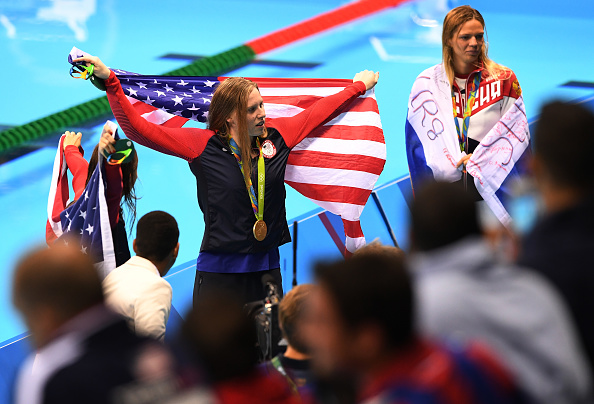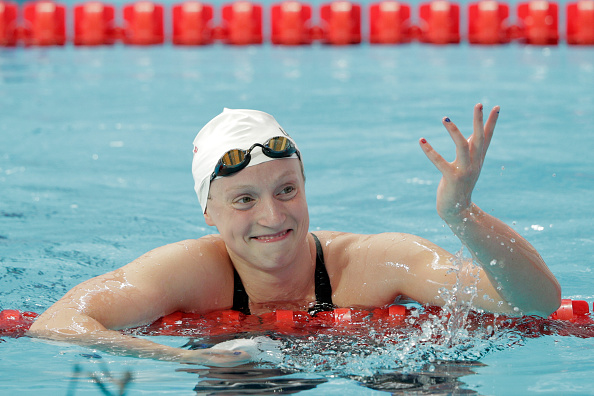Prediction: the Russians will be at the Rio 2016 Summer Games.
Reality check: they should be there.
Fundamental fairness dictates that the Russians must be allowed to compete in Rio.
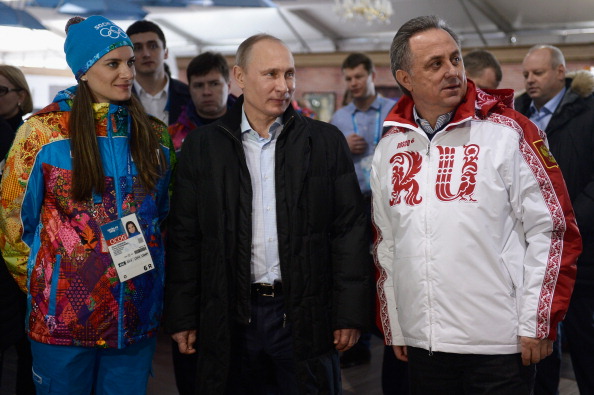
To start with the obvious, amid allegations that state-sponsored or -sanctioned doping pervaded the Russian sports system:
It’s between a rock and hard place for track and field’s governing body, the International Assn. of Athletics Federations, in trying to decide whether to allow the Russians — the track team is currently suspended — into the 2016 Games. A decision is due June 17 at a meeting in Vienna of the IAAF’s policy-making executive council.
Similarly, it’s between that same rock and that same hard place for the International Olympic Committee, which is then going to be charged with reviewing whatever the IAAF decides, and maybe other federations do, too.
Never — repeat, never — has the IOC banned a nation for doping violations.
The IOC has, of course, banned countries from editions of the modern Games. But only for geopolitical concerns:
Germany and Japan didn’t get invites to the London 1948 Summer Games. South Africa’s apartheid policy kept it out of the Games between 1960 and 1992. Afghanistan didn’t go to the 2000 Sydney Games because of Taliban discrimination against women.
To ban a country for doping — especially a country as important in the Olympic landscape as Russia — would set a volatile new precedent.
Improbable, at best.
That said: no matter what decisions ultimately get taken, there’s going to be criticism.
Such criticism is likely to be amplified if the rumor now circulating in Olympic circles turns out to be true — that as many as half of the 31 2008 Beijing positives just announced come from Russia. Again, for now and for emphasis — just rumor.
Look, criticism comes with life in the public sphere. Whatever. If you are Seb Coe, the IAAF president, or Thomas Bach, the IOC president, that’s why you got elected — to demonstrate leadership, to make tough decisions.
Honestly, this one is really not that tough.
The bottom line, and back to fundamental notions of fairness:
You can’t assign collective responsibility in matters — like this one — that demand individual adjudication.
Let’s say that the explosive allegations advanced in the New York Times by Grigoriy Rodchenkov, director of the Sochi 2014 anti-doping lab, turn out to be true: that he substituted dirty samples for clean ones in concert with other Russian anti-doping experts and the FSB, the Russian intelligence service, purportedly having found a way to break into supposedly tamper-proof bottles.
What bearing would any of that, particularly in the Winter Games context, have on athletes due to compete in the Summer Olympics?
Even Bach has been hinting this way, if you stop and parse what he has been saying amid his predictable rhetoric reiterating the IOC’s absolutely ridiculous assertion of a “zero tolerance” policy.
There is no such policy. There never has been. Never will be.
Life is not susceptible to a reduction of simple black and white, of “zero tolerance,” especially in the doping sphere, which is layered with nuance and based on individual determination.
Is American 400-meter star LaShawn Merritt’s 21-month bust for the sexual performance-enhancer ExtenZe, containing the banned substance DHEA, the same as the U.S. sprinter Tyson Gay’s one-year ban for a positive test for an anabolic steroid? Consider: Merritt was hardly secretive in buying ExtenZe; he got it at a 7-Eleven store. Gay voluntarily came forward with evidence against others.
The American swimmer Jessica Hardy got a one-year suspension — missing the 2008 Beijing Games — after a positive test for a banned substance that, the evidence shows, pointed to a tainted dietary supplement. Is that the same as the sprinter Marion Jones using steroids extensively and lying about cheating for years until finally confessing and forfeiting her five Sydney 2000 medals?

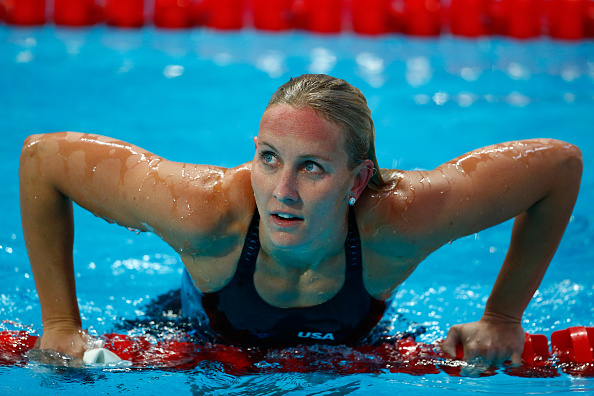
Obviously not.
Everyone’s case is distinct if not unique.
In a conference call last week with reporters, Bach, asked if the Russian Olympic Committee could be suspended, said, “I will not speculate because there comes a decision we have to make between collective responsibility and individual justice.”
He also said the IOC wants “individual justice for the concerned athletes but also for the clean athletes around the globe.”
It’s that basic, and that was precisely the point the Russian pole vault diva, Yelena Isinbayeva, made in an interview Monday arranged by national track and field officials. Waving forms documenting four recent drug tests she said she had passed, she said this about the idea that she should be forced to stay out of the Games:
“It’s a direct violation of human rights, discrimination.”
If the IAAF or IOC were to move against Russian participation in Rio?
"In the case of a negative ruling for us,” she said, “I will personally go to an international court regarding human rights. And I'm confident that I'll win."
She is right. She would win. It’s a slam-dunk.
Start wth Rule 44 of the Olympic Charter. It says, “Nobody is entitled as of right to participate in the Olympic Games.”
At the same time, Rule 40 says that to be eligible for participation in the Games, “a competitor” must respect and comply with the charter and with the World Anti-Doping Code, and “the competitor … must be entered by his NOC,” or national Olympic committee.
In 2011, international sport’s highest court, the Swiss-based Court of Arbitration for Sport, was presented with what was widely called the "Osaka rule" case. The IOC executive board had sought (meeting in Osaka, Japan, thus the reference) to ban an athlete from the next edition of a Games if he or she had served a doping-related suspension of more than six months.
The IOC made this argument: “The objective of the IOC Regulation," meaning the Osaka rule, "is to protect the values of the Olympic Movement and the Olympic Games from the threat and scourge of doping and to encourage potential participants in the Olympic Games to adhere strictly to the applicable anti-doping programs.”
The IOC also asserted that the rule was “proportionate to the important aims the IOC pursues and does not infringe personality rights as there is no such right to participate in a single event.”
Nope. These did not fly. CAS ruled for the plaintiff, the U.S. Olympic Committee, which had, among other cases, cited Hardy and Merritt. In 2012 in London, Hardy and Merritt won Olympic medals.
“… The Olympic Games are, for many athletes, the pinnacle of success and the ultimate goal of athletic competition,” the panel wrote. “Being prevented from participating in the Olympic Games, having already served a period of suspension, certainly has the effect of further penalizing the athlete and extending that suspension.”
In essence, that’s double jeopardy — being penalized twice for the same thing.
Extending the reasoning:
If since 2011 there is on the books CAS language explicitly saying that being denied participation in the Games amounts to “penalizing the athlete,” it logically follows that it would be impossible to penalize individual athletes who have not been found guilty of anything.
Incidentally, it’s also worth recalling that in its case before CAS, the USOC obtained friend-of-the-court briefs — that is, supporting its position — from around the world. These included the anti-doping agencies of Denmark, France, Norway, New Zealand, South Africa, Switzerland, the United Kingdom and the United States; the Dutch and Hungarian Olympic committees; the Spanish Professional Cyclist Association; and the Russian Biathlon Union.
In 2012, in a follow-on case, the same three-member CAS panel struck down a British Olympic Assn. guideline that sought to impose a lifetime Games ban for anyone found liable of doping.
There, it said: "By requiring consistency in treatment of athletes who are charged with doping infractions or convicted of it -- regardless of the athlete’s nationality or sport -- fairness and proper enforcement are achieved."
It's extremely difficult to be consistent in applying the doping rules if the doping rules aren't applied to clean athletes, "regardless of the athlete's nationality or sport," in the first instance.
To go further:
Suspicion, even widespread, is one thing. Definitive proof is another. Anyone in that situation, no matter what it was, would want — indeed, expect — that before judgment got passed.
Indeed, Article 10.4 of the current World Anti-Doping Code says that if an athlete "establishes in an individual case that he or she bears no fault or negligence," then there can be no "period of ineligibility."
All of this, by the way, completely ignores the role of personality and relationship in the Olympic movement.
The chairman of the USOC “Osaka rule” panel? Canadian law professor and anti-doping expert Richard McLaren. The BOA case? McLaren.
The WADA-appointed independent commission that was announced last week — to investigate allegations from Rodchenkov and others about Sochi 2014? McLaren heads it.
That WADA-appointed three-member independent commission that issued two reports, one last November, the other in January, about the scope and nature of doping in Russia? McLaren was one of the three (along with Canadian IOC member and first WADA president Dick Pound and German law enforcement official Günter Younger).
That’s not to say or even suggest that McLaren has a conflict of interest. It’s to point out that he understands the layers and the law.
Putin, meanwhile, is one of the key figures not just in world politics but in the Olympic and international sports scene. That’s what you get when you spend a reported $51 billion for an Olympics, obviously. But more: 2013 world track and field championships in Moscow, 2013 Summer University Games and 2015 world swim championships in Kazan, 2018 World Cup all over the country.
The very first phone call Bach got upon election to the IOC presidency in September 2013? From Putin.
Putin and Isinbayeva, meanwhile, have had a longstanding and obviously constructive relationship. She is the 2004 and 2008 gold medalist, the 2012 bronze medalist. In speaking Monday, it is absolutely the case that she stepped forward as a Putin proxy.
You want evidence? Beyond the fact that her entire interview Monday was specifically arranged so she could make her central point?
Look back at photos from 2014, in Sochi. Who, as a Summer Games star, served as the politically connected “mayor” of the Winter Olympic athletes’ village?
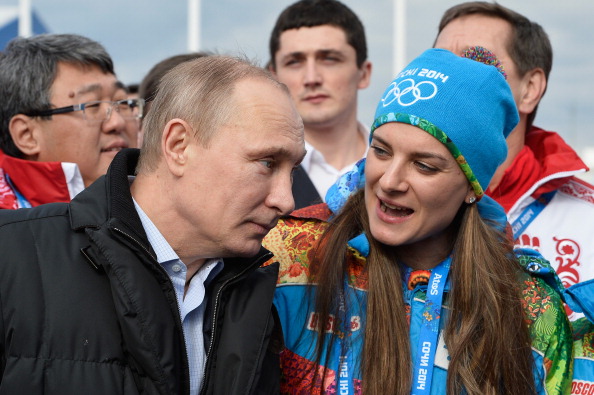
Or look at a revealing photo from the Laureus World Sports Award from 2008. A picture, they say, is worth a thousand words.
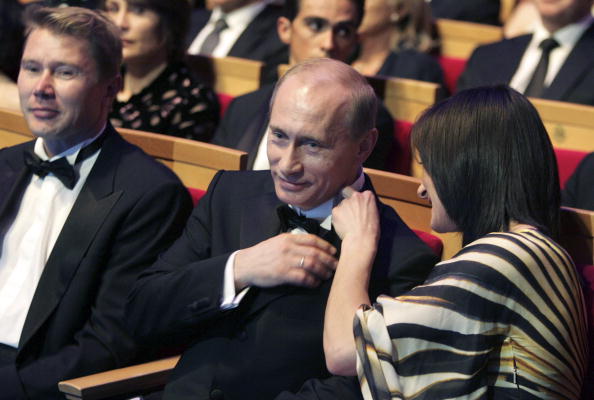
The key position of chief of the 2022 Beijing Winter Games coordination commission? That was announced this past February, amid all the headlines screaming Russian doping: it’s the head of the Russian Olympic committee, Alexander Zhukov. He is a close Putin ally. Who else is on that 2022 commission? Sochi 2014 president and chief executive officer Dmitry Chernyshenko. He, too, is close with Putin.
Coe and Bach go back to 1981, to the IOC Congress at the German resort of Baden-Baden. There they made some of the presentations that would lead to the creation of the very first IOC athletes’ commission.
When Coe ran last year in a hotly contested race for the IAAF presidency, who could he count among his key supporters? You figure it out.
For all this, there is the core argument advanced by those who believe the Russians ought to stay home: the allegations of doping are state-supported.
That, they say, makes it different, akin to the 1970s and East Germany.
Really?
For one, the allegations involving the Russians are, in many cases, still just allegations. The November WADA report suggests clearly that Rodchenkov has issues: “The [commission] finds that Dir. Rodchenkov’s statements regarding the destruction of [1,417] samples are not credible.”
It also says, “There is insufficient evidence to support the figure of 99 percent of members of the Russian national [track and field] team as dopers.”
For another, a huge number would now appear to involve meldonium — a substance about which even WADA has already changed its guidelines. Sir Craig Reedie, the WADA president, says 47 of the 49 positive tests in Russia between last November and May 5 were for meldonium.
Of more import is this: people in glass houses should not throw stones. As the November WADA report makes crystal clear: “… Russia is not the only country, nor athletics the only sport, facing the problem of orchestrated doping in sport.”
Just 12 years ago, the Olympic world was consumed with the United States-based BALCO scandal — which ultimately would ensnare Jones and multiple others with Olympic appearances and medals. Did anyone scream and yell that the entire American track and field team ought to be banned from the Athens 2004 Games?
Three-plus years ago, Lance Armstrong and the U.S. Postal team finally went down — after years of outright lying and bullying. The U.S.Anti-Doping Agency's “Reasoned Decision” goes on for hundreds of pages in detailing what it called a “massive team doping scheme, more extensive than any previously revealed in professional sports history.”
Just to be clear: the publication of the Reasoned Decision, in October 2012, and Armstrong’s “confession” to Oprah Winfrey, in January 2013, would put his case squarely within the current four-year Olympic cycle.
Curious that no one is arguing that the entire U.S. cycling team ought to stay home. Or, by extension, the entire American Olympic team.
If it’s state-sponsored doping that is the problem — there’s a very good argument to be made that the American way, with its emphasis on the enormous profit motive inherent in successful doping, is even more perilous.
Which all leads to this:
The reason so many people in so many places don’t want the Russians in Rio is, again, fundamental.
It’s Putin.
Lots and lots of people don’t like, mistrust or, at the core, fear Putin.
But that, in and of itself, is not reason enough to move against the entire Russian track and field, or Olympic, team.
And as the Olympic movement learned painfully a generation ago, with boycotts of the 1980 Moscow and 1984 Los Angeles Games, the notion of punishing athletes for political purposes is wholly unfair, maybe even cruel.
See you along with the Russians in Rio. Maybe even Putin will be there.



